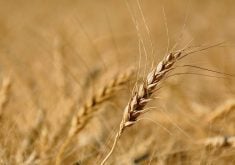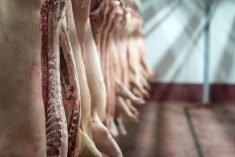China has approved another crushing plant to receive Canadian canola seed, a further increasing of the access for a crop that has been partially restricted since 2009.
The crusher is in Nantong, Jiangsu province, and has an annual capacity of 600,000 tonnes per year.
According to a Canadian government news release, the facility has received approval to accept Canadian canola on a “trial basis while governments and industry continue to work toward finding long term solutions.”
The expansion of access, which eases the restrictions that were placed on Canadian canola seed that were first imposed because of an official concern about the possibility of the disease blackleg being carried into interior China through Canadian seed, was announced during a trip to China by trade minister Ed Fast.
Read Also

ICE Weekly: Trade progress, new data threaten to break canola’s price range
Canola futures could be affected by trade progress between Canada and China as well as the USDA’s November supply and demand estimates.
Agriculture minister Gerry Ritz hailed the development of more access, something the industry and government have focused on since 2009.
“Today’s announcement is a result of continued collaboration and an important step to further expand canola exports to China,” said Ritz in the press release.
“Our government’s top priority remains the economy, and by resolving market issues in countries like China we are helping to increase Canadian exports and deliver real results for Canadian farmers.”
The imposition of the blackleg ban has not stopped China from being a leading buyer of Canada’s canola products. While seed has been restricted to coastal crushers, those plants can handle about five million tonnes per year. Chinese buyers have also been importing much canola oil and meal from Canada, providing Canadian crushers with steady business.
Many Canadian canola players think the original Chinese restrictions were a ploy to boost domestic canola values in order to help Chinese farmers. Restrictions were also placed on Australian canola, but recently they too were partially relaxed. Others say the Chinese have a legitimate fear of blackleg, the results of which can significantly damage yields.
Canadian and Chinese officials are working on research and analysis about the dangers and mitigation of blackleg for the goal of re-opening the market completely.















